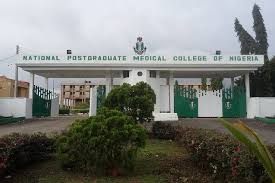
SOKOTO/Nigeria: Nigerian medical specialists have raised fresh alarm over the mass exodus of doctors and the internal drift of health workers from rural areas to urban centres, warning that the trend is threatening postgraduate medical education, research, and healthcare delivery nationwide.
The warning came at the 19th Annual Scientific Conference and All Fellows’ Congress (ASCAF Caliphate 2025), organised by the Postgraduate Medical College Fellows Association (PMCFA) in collaboration with the National Postgraduate Medical College of Nigeria (NPMCN). The week-long event, which ran from August 3rd to 8th at the International Conference Centre, Sokoto, drew participants from across Nigeria and the diaspora, including government officials, academics, and traditional rulers.
With the theme “Leveraging Technology, Innovation, and Diversification to Revolutionise Postgraduate Medical Education in Nigeria,” the congress examined the integration of artificial intelligence into medical training, the challenges of brain drain, and the future of healthcare innovation.
In a communiqué issued at the close of the congress, the Fellows lamented that “there is significant migration of doctors, young and old, out of the country that is negatively impacting medical education, research, and service delivery.” They also noted that within Nigeria, rural communities remain underserved as health workers flock to urban centres.
The Fellows criticised the poor implementation of the National Health Workforce Migration Policy launched in 2024, warning that policy declarations alone cannot stop brain drain without concrete action. “There is no commensurate significant stride to address the drivers of health workforce migration, such as low salaries and poor working conditions,” the communiqué stated.
College President, Dr. Peter Ndidi Ebeigbe, called for deliberate retention strategies, stressing: “We must create conditions that motivate our workforce to stay, and where possible, encourage those in the diaspora to return and contribute at home.”
The Fellows further urged reforms in medical education to align with global best practices. “Globally, institutions are integrating AI into curricula to improve competency-based education and lifelong learning. Nigeria cannot afford to lag,” the communiqué read. Recommendations included a national roadmap for AI integration in medical training, workshops to build capacity, and oversight committees to manage ethical and policy issues.
Participants also identified healthcare entrepreneurship as an underexplored field that should be incorporated into medical education to improve outcomes. They advised that medical practitioners be exposed to business models that can drive innovation in healthcare delivery.
Another pressing issue highlighted was the financial vulnerability of medical professionals. The communiqué advised doctors to embrace financial literacy, insurance, and investments to cushion low pay. “A clinician distracted by personal financial stress, partly from inadequate compensation, is dissatisfied and half-as-present at the bedside with a strong drive to migrate,” the statement warned.
The Fellows urged government at all levels to harmonise pay structures, modernise facilities, and tackle corruption, noting that attractive welfare packages and advanced technology are key to retaining medical professionals, particularly in rural areas.
The conference also featured the annual Professor Theophilus Ogunlesi Lecture, delivered by Prof. Basden J.C. Onwubere, who described hypertension as a “silent killer” projected to affect 1.5 billion people globally by 2025. Distinguished Fellows, including Emeritus Prof. S.C. Ohaegbulam and Prof. Angela Okolo, were honoured for their contributions to medical education.
Among dignitaries present were His Eminence, Sultan Muhammad Sa’ad Abubakar III; representatives of the Governors of Sokoto and Kebbi States; the Coordinating Minister of Health, Prof. Muhammad Ali Pate; and the Minister of Education, Dr. Morufu Tunji Alausa.
In their closing remarks, the organisers expressed appreciation to President Bola Ahmed Tinubu, state governors, royal fathers, and academic leaders for their support, reaffirming their commitment to strengthening postgraduate medical education in Nigeria.
